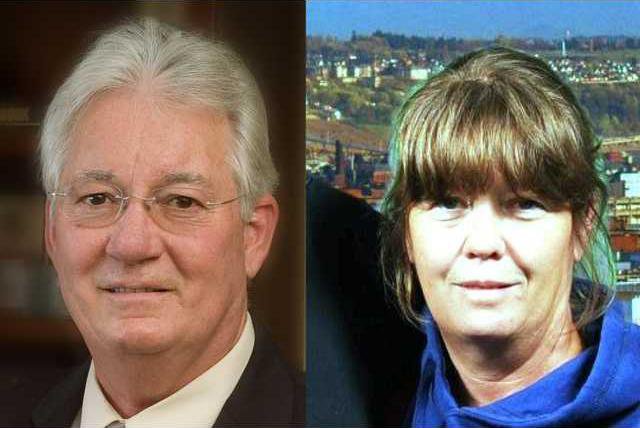Oakdale’s rising civil war over the decision to ban city park drinking has risen to other battlegrounds as two former city council candidates with opposing views exchanged shots, both contending their statements, criticized by the other, were made as private citizens and not part of the official city-related roles they now hold.
On Wednesday, Aug. 21, unsuccessful 2012 council candidate and current Oakdale Travel and Visitors Bureau (OTVB) Administrator Ramona Howard, sent a lengthy email to city council members, The Oakdale Leader, and a Modesto Bee reporter regarding banning park alcohol drinking and the city’s proposal of putting portable toilets in certain parks. Also copied in the email were three citizens that were quoted in an Aug. 21 Leader article who spoke in support of the ban at the Aug. 19 council meeting.
In her email, Howard mentions that “several years ago” she spoke in support of a ban not just for Dorada Park, but at all parks and that she foresaw problems ahead without the ban.
Howard then writes, “Well, between a council who couldn’t see the same problem and an ex-mayor (Farrell Jackson) insisting that we keep drinking so he could have a beer with his grandkids in the park, they failed to attack the problem back then when it was a bit more manageable.”
She continues to name Jackson by stating, “Our parks had become a haven for the homeless and drunks and it seemed as if a majority of the council and ex-mayor Farrell Jackson didn’t want to save our city from this.”
Later in the day, the Oakdale Tourism Business Improvement District (BID) Advisory Board held its bi-annual meeting at the Best Western Hotel.
Jackson, now a councilman who ran in the same November 2012 election as Howard, attended the meeting but made it clear during introductions he was present as an Oakdale citizen and not in any official capacity.
During the public comment portion of the meeting, Jackson informed the board of Howard’s email, reading selected portions. Howard was seated on the dais taking notes and appeared to be chairing the meeting.
“I view that statement as a personal attack,” Jackson said. “I’m going to ask the board, ‘Is this how you want to be represented?’”
Jackson continued that he has supported the board and tourism in Oakdale.
“That statement (‘so he could have a beer with his grandkids in the park’) makes me out to be a bad person,” Jackson said. “I’m disturbed that a person representing the city and board would dish out personal attacks.
“Ramona, I’m sorry you didn’t get elected, but let the sour grapes go,” Jackson told Howard, reminding her that when he made the statements she referred to, he was then an un-elected private citizen commenting on an agenda item at a council meeting. (Refer to April 2, 2012 Leader article: Solutions Sought - Council Talks Banning Alcohol From Parks)
Howard countered that her email contained nothing that wasn’t public record. She added that her email was also in the capacity as a private citizen, sent from her personal email account.
BID board members pointed out that Howard was not part of their board even though she was the administrator for the OTVB.
Jackson said that the two groups were not “at arm’s length” from each other, especially since Howard appeared to be leading their BID meeting.
When asked, only one board member, Has Panchal, said he was aware of the email prior to Jackson addressing them.
Panchal added that he would discuss the email “in confidence” with the rest of the BID board.
When asked by The Leader how that discussion was exempt from the Brown Act, BID chairman Ramesh Mistry said the matter would be discussed confidentially with the OTVB members – which predominantly are the same individuals.
Last year both boards came under scrutiny when there were concerns by councilmembers that the same persons were leading both organizations. City Attorney Tom Hallinan also stated that having the same leaders for the two bodies was a potential conflict of interest.
In March 2011, two members of the BID also came under fire by the council for potential violations of the Brown Act when they were accused of calling an unauthorized meeting with only “a quorum of ‘select’ members of the BID commission.”
After the meeting Jackson said that his resistance to the alcohol ban is due to the feelings of his constituents that had relayed their views to him.
“I’ve had many citizens contact me and say not to punish us all for the acts of a few,” Jackson said. “In this case, the reason I spoke up is I felt attacked as an individual and not as a councilman.”
Howard said afterward that everyone, including Jackson, was entitled to speak their mind and she didn’t take his remarks personally but that she did not want to comment about the interaction.





